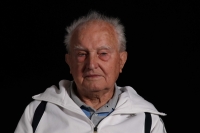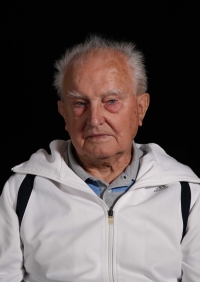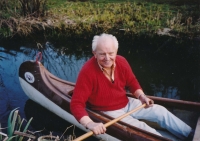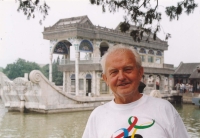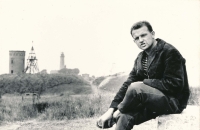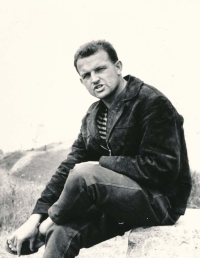I got fifteen Germans with shovels and we were burying carcasses

Download image
He was born on 25 June 1929 in Jihlava, then a majority-German town. He describes the deterioration of Czech-German relations that culminated in the Nazi occupation. The eight-year grammar school he entered in 1940 was closed by the Protectorate authorities, as was the business school he transferred to. At the age of fifteen, he was forcibly deployed to a German company “to drill”. On 5 May 1945, he enlisted in the Revolutionary National Committee liaison service in Jihlava and helped the Jihlava rebels as a liaison. For example, he negotiated with a unit of Hungarian soldiers in Hruškové Dvory. He was arrested by the SS and taken to a Gestapo station, where he was held until the next day. After the German surrender, he continued to work for the National Committee: he guarded various houses and warehouses and, with a gun in his hand, also commanded a working group of Germans tasked with clearing away animal carcasses. He parted company with the National Committee at the end of May 1945, when the Communists took over the position of power. In 1949, after two years of study, he was expelled from the University of Economic Sciences during a political vetting process. He worked as a controller of the Horácký nábytek cooperative in Jihlava. In 1968 and 1969, he travelled to Western Europe. After that, he was not allowed to travel for twenty years. In 2023, he lived in Prague.
